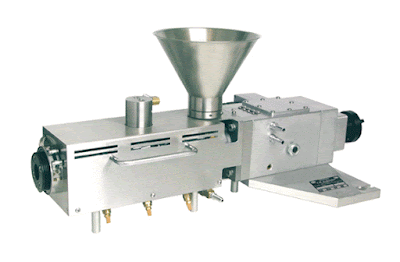Twin screw extrusion technology was first used in 1956 as a technique for processing plastics and Clextral was a pioneer in that field. Clextral then became the first company to apply extrusion technology to food processing over 40 years ago.
Since then, it has continued to innovate and is today a recognized leader in new generation twin screw extruders for Food & Feed processing.
Twin-screw extrusion processing versus conventional food processing
Sustainable: remarkable process-intensifying capability of twin-screw extrusion technology and associated processing lines allows determinant operational advantages to be achieved, such as: continuous HTST (High Temperature-Short Time) cooking, high productivity owing to reduced downtime and material losses, energy and water savings, reduced footprint.
Highly flexible: the same processing line is able to process various types of raw materials and mix formulations, and to produce a wide range of end products; whereas conventional cereal cooking processes (baking, hydrothermal cooking, etc.) are often limited to the production of low ranges of end-products with restricted possibilities to change operating parameters.
Fully automated, with high level of operating stability; hence leading to consistent product quality; whereas conventional processing lines require frequent adjustment of process parameters.
Fairly well suited to product innovation, with the possibility to target easily the four basic quality attributes of food products that are taste, flavour, texture and nutrition; product innovation may include upgrading of existing products as well as new products.
Economical and cost-effective, as they are characterized by reduced CAPEX and OPEX due to the remarkable process-intensifying capability of extrusion processing technology.


No comments:
Post a Comment